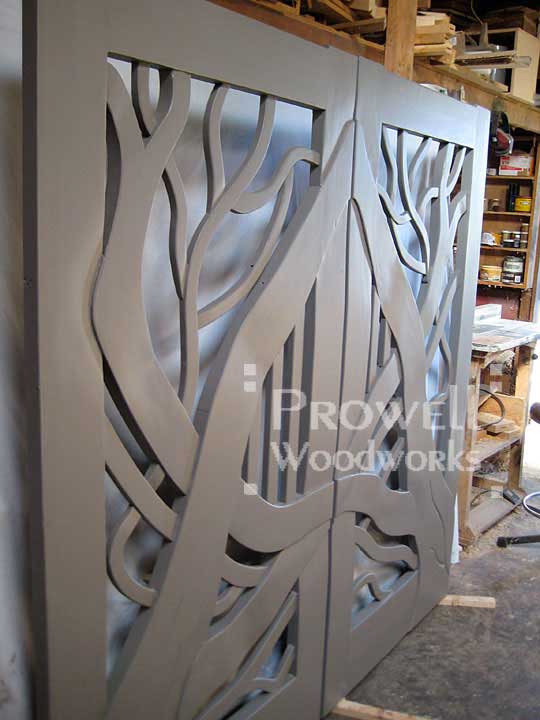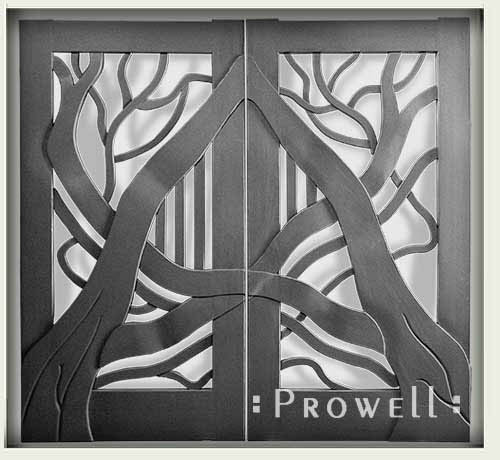(Available as a single or double gate)
It’s hard to explain the original inspiration behind the idea for these unusual wooden gates. A labyrinth of hand-carved shoots leading here and there. Something different, is all.
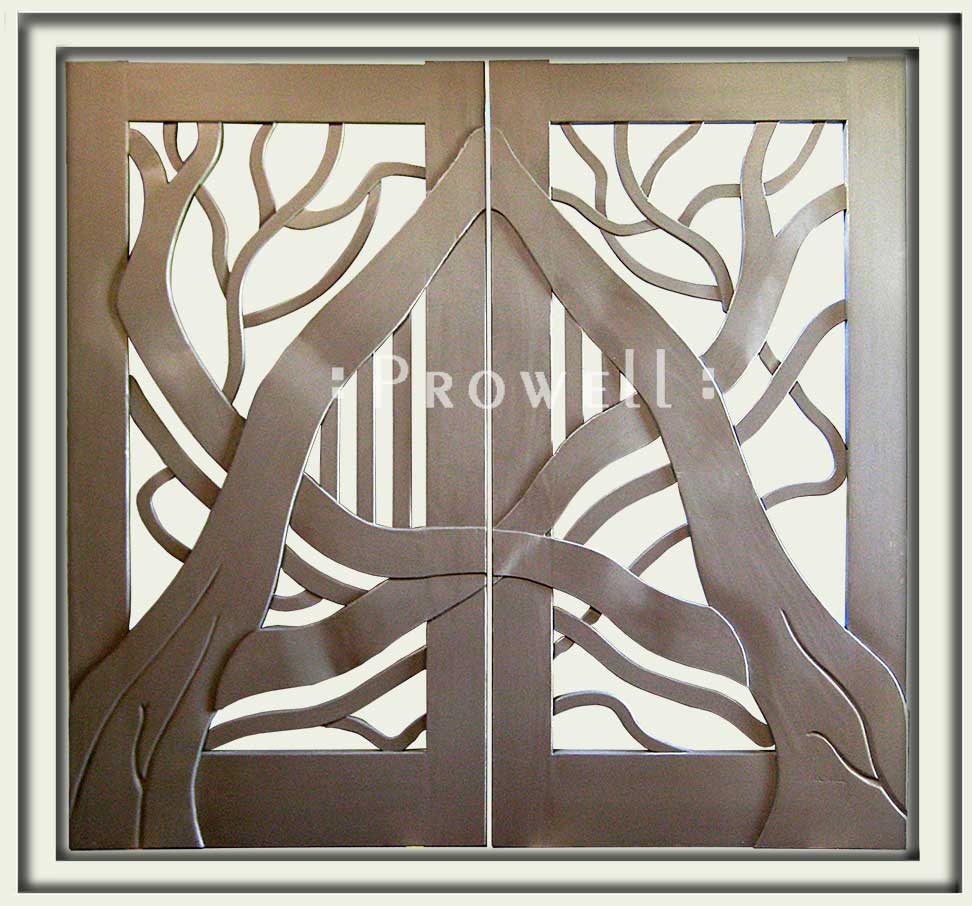
WOODEN GATES 204
Pebble Beach, CA
Wood Gate 204, shown as the garden gate design for main gates along the 17-Mile Drive in Pebble Beach, CA. An ideal confluence, all in all, with the windswept Monterey Cypress famously associated with the area.
* Showing an arbor built and installed on site to buttress the unstable stucco walls.

CUSTOM WOOD GARDEN GATES 204
Pebble Beach, CA
A photo two months later, without the arbor. The stucco wall itself was settling, apparently due to a high water table and a soft soil substrate. The walls are ultimately stabilized and the arbor was removed. Thank you. Shown with Rocky Mountain Gate Latch E414.

WOODEN GATES 204
There are varying levels of depth, giving the impression of continuity as the smaller branches pass through larger limbs with the illusion of organic garden gates.

DOUBLE WOODEN GATES 204
Each of the secondary limbs for the double gates are joined by a mortise and tenon joint that varies in its size and stress load. For strength, these secondary limbs were hand-carved from the dense ipe species.

![]()
In-Progress
DOUBLE WOODEN GATES 204–PROGRESS
The technique of creating relief, and depth, was first attempted in the mid-1980’s on Prowell’s stand-up swivel mirror below.

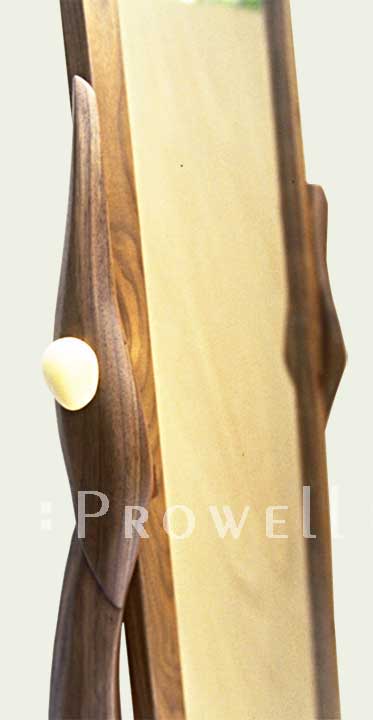
204–PROGRESS
Creating the hand-carved relief begins by scoring the line with a sharp marking knife. Followed by opening up the scored line using the same knife. And then the chisel, working away the stock in a gradual feathering. The relief details throughout the double wood gates 204 are replicated with this same approach.
It is advisable to settle upon a system for honing your chisels that is quick and easy, lest it be put off and you’re working with dull tools. This adage from the novelist Cormac McMarthy: “Most men are in their lives like the carpenter whose work went so slowly that he had no time to sharpen them.”

204–PROGRESS
The growth of our secondary planes begin to take shape. Having spent inordinate hours sketching trees as an art and architecture student, the lessons of perspective and vanishing scales return to dictate the separation from the primary and secondary layers. This will be furthered when the hand-carved garden gates are actually assembled and glued to a final position, followed only then by the remedial carving that will distinguish the limbs on their distinctive planes. We would hope to see, from a distance, a sense of depth we see when actually viewing a tree; how the limbs and branches in the background are foreshadowed to those larger limbs in the foreground by the existence of size and shadow. In a two-dimensional work, we’ll create the illusion of shadows by carving reliefs at strategic points of confluence.
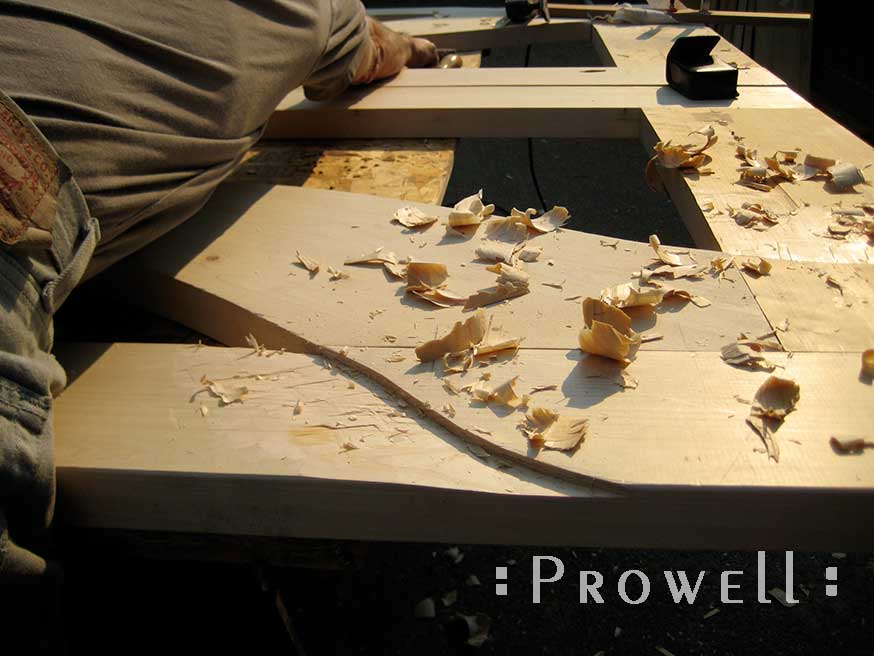
204–PROGRESS
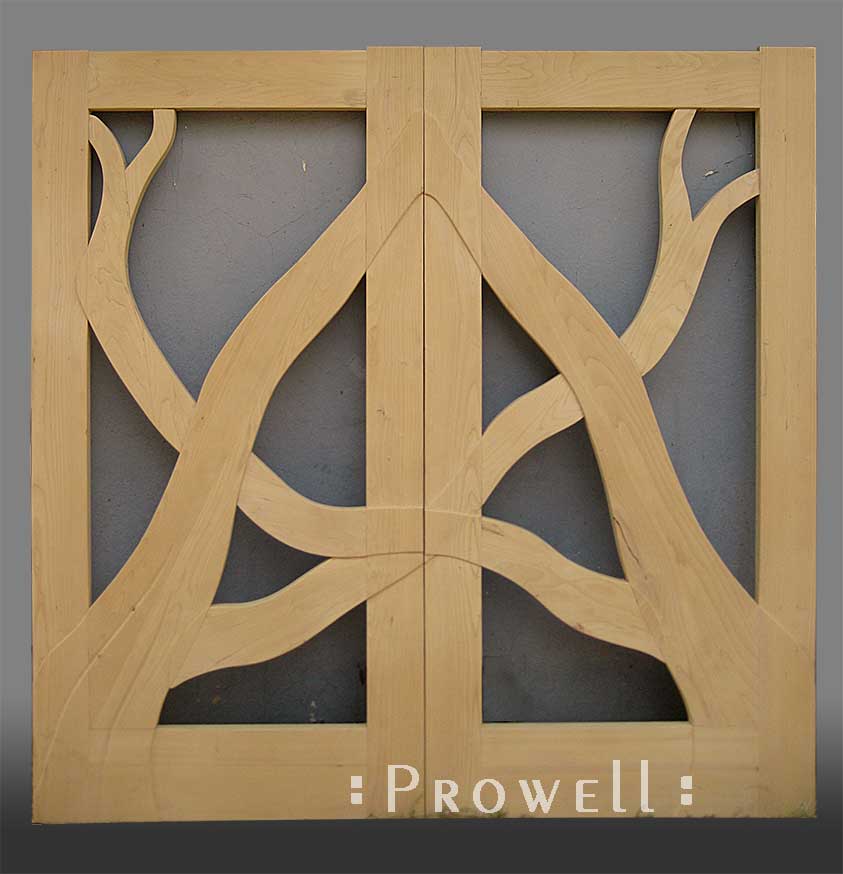
204–PROGRESS
Jumping forward to the finished product. The secondary limbs are of Ipe, a dark, dense, resistant species from Brazil almost impossible to find as a certified offering. The vast vast majority of this currently popular wood is being harvested and exported without regard to the environment or the indigenous populations it impacts. There is simply not enough manpower or resources to enforce the laws of an area so vast as the Amazon Basin, which has changed so dramatically since Charles was there in the mid-70’s. At that time, there was only a single partially completed dirt road being cut through the jungle known as the BR-1. Today a miasma of logging roads like spider webs, with a loss of the rain forest at a rate that boggles the mind.
So we went to some extremes to find a rare source of certified Ipe, costing about three times the going rate.
